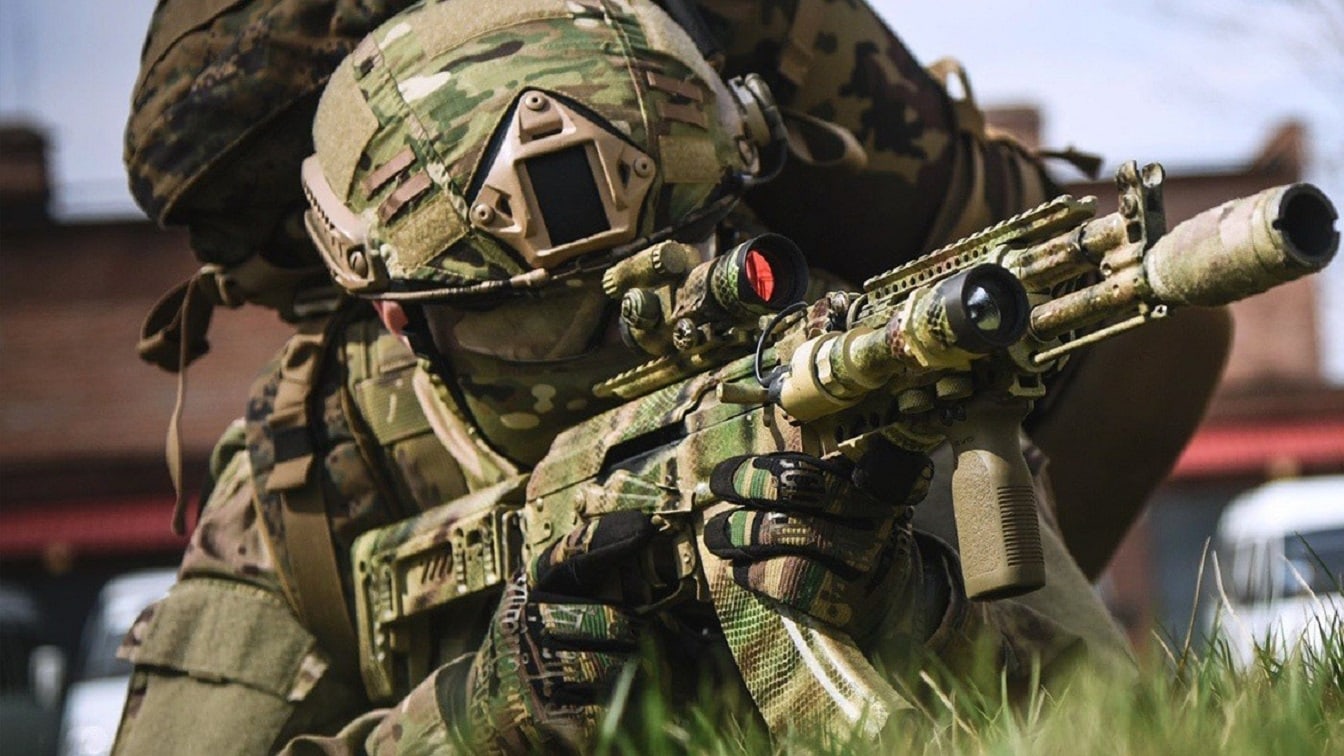The Russian invasion of Ukraine has seen an abundance of special operations. Both countries, after all, possess competent — for the most part — special operations forces. The Russian military has the famed Spetsnaz, while the Ukrainian special operations forces have been trained and equipped by the U.S. and the West.
However, despite the pre-war expectation of daring raids behind enemy lines, there have been few accounts of special operations in the war. Both sides have managed to keep any under wraps. But there seems to be one notable exception. In early March, Ukrainian special operations forces allegedly rescued the mayor of Melitopol from Russian captivity.
The operation
In early March, Ukrainian special operations forces rescued the mayor of Melitopol Ivan Fedorov from Russian captivity, according to the Ukrainian government. Melitopol is located in southeastern Ukraine and has been in Russian hands since early March.
In the first days of the invasion, the Russian troops were very careful not to alienate the Ukrainian population, even allowing protests in occupied towns and in some cases, famously, allowing civilians to stop or turn Russian tanks back. But after more than a month of fighting, the masks have fallen, and the Russian military has shown the world its true colors by committing war crimes and other atrocities throughout occupied Ukraine.
After the Russian military captured the town, the Russian security services started a campaign of repression, arresting Ukrainian officials and other persons of interest who could prove a nuisance. Fedorov was one such person, and CCTV footage showed Russian troops marching him away.
Before the invasion, Western intelligence services had warned Ukraine and the world of the Kremlin’s plans to abduct Ukrainian politicians, academics, administrators, and other officials that might pose a threat to their plans. Ukrainian officials are claiming that the Russian security services have abducted at least three Ukrainian mayors.
Kirilo Timoshenko, an adviser to Zelensky and the deputy of the Ukrainian presidential office, said that the mayor of Melitopol was freed following a “special operation,” but he didn’t provide any additional details about the operation or what Ukrainian units were involved.
Following the operation, Fedorov spoke with Ukrainian President Volodymyr Zelensky, the video of the correspondence a proof of the successful mission. After the initial pleasantries, the Melitopol mayor thanked the Ukrainian president for not forgetting him, with Zelensky simply saying that Ukraine doesn’t leave its own behind.
“We have finally managed to release the mayor of Melitopol from captivity,” Zelensky said during a national address. “Ivan Fedorov is free. I talked to him today. The Russian military abducted him on March 11, trying to persuade him to collaborate. But our man withstood. He did not give up. Just as we all endure.”
How special operations prisoner rescues work
Prisoner or hostage rescues are one of the toughest special operations mission sets. Surprise, speed, and violence of action are key in rescuing the objective before the enemy moves or kills it.
“A hostage rescue and a kidnapping (snatch operation) are fundamentally the same operation; that is, the principles of action are the same though some smaller details may be different. I have been on more snatches than hostage rescue [operations],” retired Master Sergeant George Hand IV told Sandboxx News.
Hand spent a decade in the elite Delta Force. As the Army’s tier 1 special missions unit, Delta Force specializes in hostage rescue, counterterrorism, and direct action operations, among other mission sets.
“Both operations are totally intelligence-driven. Nothing moves unless the target can be positively identified per location. It is a luxury to be able to have a dedicated action force as close to the last known location of the target. That force is subject to an extraordinarily long waiting time,” Hand added.
Alongside the Naval Special Warfare Development Group — formerly known as SEAL Team Six —Delta Force makes the U.S. national mission force. When the hardest contingencies arise, it is Delta Force and the Naval Special Warfare Development Group that answer the call. Hostage rescue, in particular, is the specialty of the two tier 1 units.
“Actions on the objective are really just a classic raid: seal off the objective (intel cells responsibility), then the snatch package floods the objective and extracts the target. Speed is key getting away safely, therefore we enjoyed the luxury on every snatch of a [MH-60] Blackhawk helo to pull the target and snatch force off the objective—speed was our security,” Hand told Sandboxx News.
Hostage/prisoner rescues and prisoner snatches have a lot of similarities. In the former case, the special operations force is trying to rescue a friendly that has been captured by the enemy. In the latter, the special operators are trying to grab either a particular person, for example, a high-value target that could provide intelligence on ongoing terrorist plots, or a random enemy combatant that could provide insight into the enemy plans and intentions.
Hand has extensive experience in prisoner snatches. He was part of the Delta Force element that deployed to the Balkans to capture Serbian war criminals or Persons Indicted For War Crimes (PIFWC).
He has written about his experiences hunting down war criminals in the war-torn Balkans and other missions with Delta Force around the world in his book Brothers of the Cloth.
“Trying to understand better the concept of a semi-permissive environment, my mission leader, a senior NCO [non-commissioned officer] like me, explained it to me like this:
‘Geo, think of it like this: there is no such thing as a semi-permissive environment; rather, it is a permissive environment with denied areas.’
I could just as easily have written that off as some unwanted verbal judo, but I liked his definition and embraced it,” Hand added.
Stavros Atlamazoglou is a Greek Army veteran (National service with 575th Marines Battalion and Army HQ). Johns Hopkins University. You will usually find him on the top of a mountain admiring the view and wondering how he got there.

